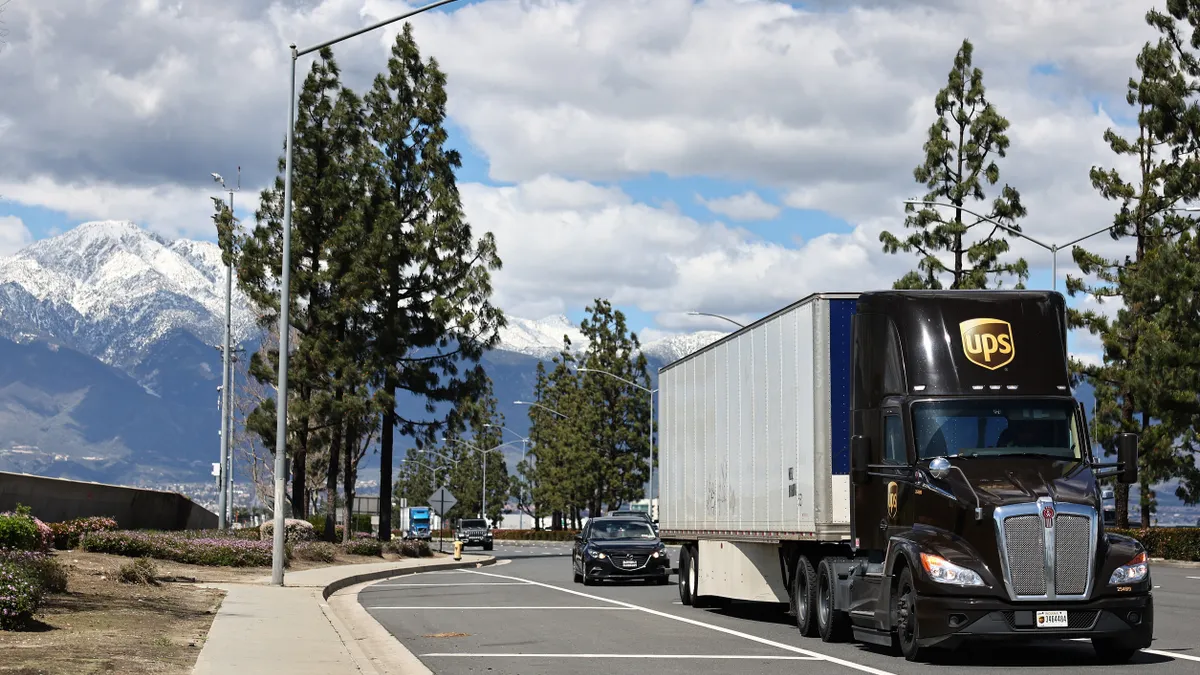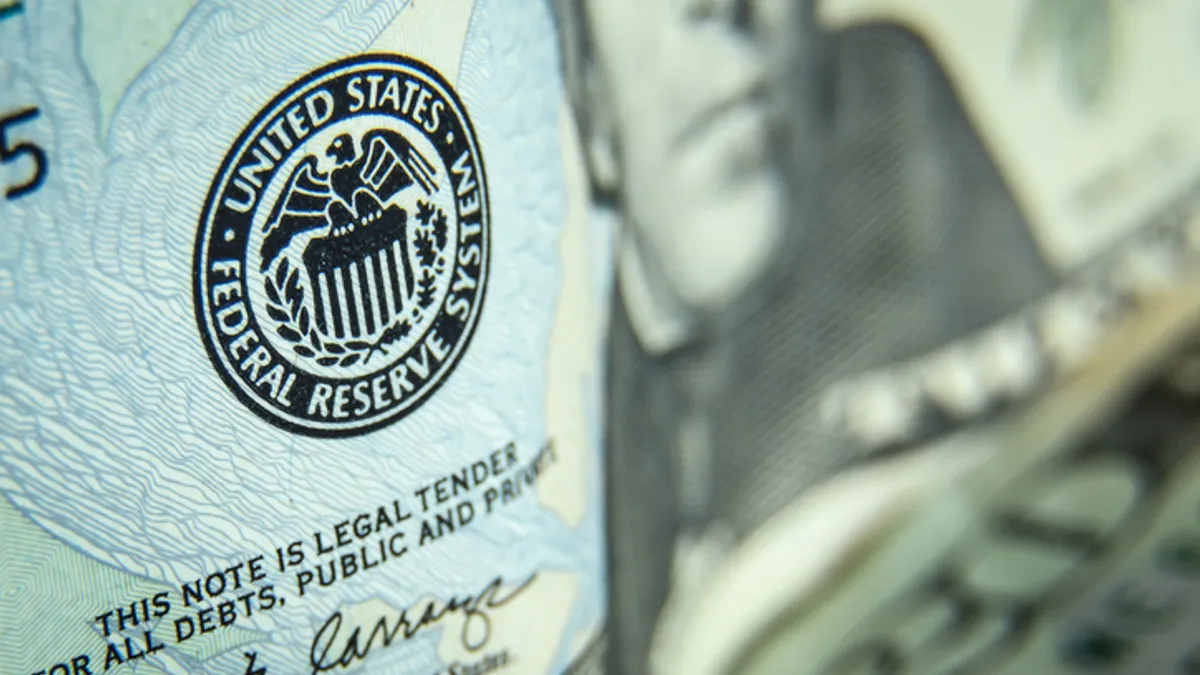United Parcel Service appointed 25-year company veteran Brian Dykes as its CFO, with his tenure to begin effective immediately according to a Tuesday securities filing. Dykes, 46, has served as UPS’ SVP, global finance and planning since April 2023, according to his LinkedIn profile.
His appointment comes after the Atlanta, Georgia-based company’s former CFO Brian Newman announced he would be stepping down from his role June 1 to focus on his personal health, CFO Dive previously reported.
The new finance leader is joining the parcel delivery company as it moves forward with strategic initiatives plans aimed at achieving between $108 billion to $114 billion in consolidated revenue by 2026. With Dykes’ appointment, “our financial priorities and company strategy remain the same, as outlined during our last earnings call,” a spokesperson told CFO Dive via email. “We will provide more information during our upcoming Q2 2024 earnings call, on July 23.”
Boosting shipping volumes
As CFO, Dykes will receive an annual base salary of $725,000, as well as a “Management Incentive Program” award with a target of 115% of his base, according to the Tuesday filing with the Securities and Exchange Commission. He will also receive a long-term incentive performance award with a target of 450% of his base salary and a stock option grant equal to 50% of his base, per the filing.
The decision to go with an internal candidate for the seat following Newman’s departure was somewhat surprising to Jeremy Tancredi, partner, supply chain solutions for West Monroe, as “the business has changed pretty dramatically over the last few years, for a few reasons,” he said.
Competition in the shipping and freight industries has continued to erode shipping volumes at UPS as players like Amazon bring shipping to their own fleets, Tancredi, who leads the supply chain group for the Chicago-based consultancy said in an interview.
With UPS facing increased costs of labor — last year, UPS inked a five-year contract with the Teamsters Union that included significant wage increases — “the only way they can recoup some of these additional costs is by increasing that sales volume, so I was expecting them to go outside with someone who has a history of growth oriented companies,” Tancredi said.
The former finance chief Newman was an external hire made as UPS pushed for growth after fallout from a planned deal between Amazon and FedEx, the Wall Street Journal reported at the time. Newman left UPS with a $1.8 million cash payment and was also eligible to receive a cash payment of the incentive he would have earned based on actual performance during the year ending Dec. 31, 2024, according to a filing at the time of his departure.
Including that cash payment, Newman was entitled to receive severance totaling about $5.9 million should his departure result as a change in control with qualifying termination, according to the company’s latest proxy statement. Newman received about $7.3 million in total compensation for the full-year 2023, according to the proxy.
As to why Dykes was ultimately chosen for the seat, his long tenure at the organization — which includes time spent in its European division — and his experience in the mergers and acquisitions space offer him intimate knowledge of the business which is going to be key in helping him understand the nuances of managing rising costs, Tancredi said.
Coming into the seat, one of the top hurdles Dykes faces is achieving that hard-to-reach goal of boosting shipping volumes without subsequently increasing costs, Tancredi said. Average daily shipping volumes in the U.S. declined by 3.2% for UPS’ first quarter, with operating profit also slumping 36.5% year-over-year to reach $1.6 billion, CFO Dive previously reported.
“They're built to handle additional volume, except for when it comes to the labor piece,” said Tancredi, who worked at UPS as an industrial engineer for a five-year period beginning in 2000. “Now, as that volume grows, they're going to have to add additional drivers, and that's going to be at the higher wages that they negotiated last year.”
This leaves Dykes facing a quandary, as, “by growing volume, I need to grow my driver base and to grow my driver base, I have to grow my cost,” Tancredi said of the challenge.
UPS has announced plans aimed at helping to facilitate its growth, aiming for free cash flow of between $17 billion and $18 billion for 2026, as well as capital spending of between 5.5% of total revenue between 2024-2026, the parcel service said.
The parcel service has also undertaken several other strategic moves in recent months. In June, UPS announced it had inked an agreement to sell its Coyote Logistics business to RXO, Inc — another logistics and shipping firm — for $1.025 billion, according to a press release. The transaction is expected to close at the end of the year following regulatory approval.
Such deals represent a “getting back to basics” for UPS, with the company focused on its core parcel business, Tancredi said. UPS CEO Carol B. Tomé echoed the sentiment in a statement included in the June release, noting the sale “allows an even greater focus on our core business,” she said.
UPS is planning to further discuss its strategic initiatives when reporting its Q2 2024 results, which it is set to do July 23, according to a separate Tuesday release.




















